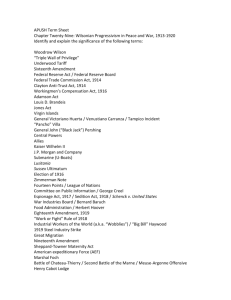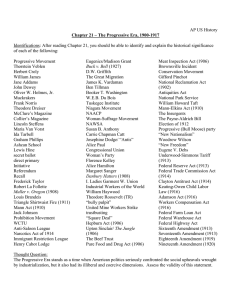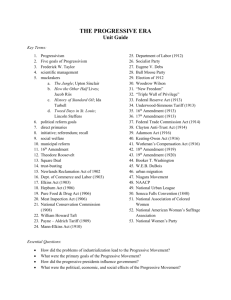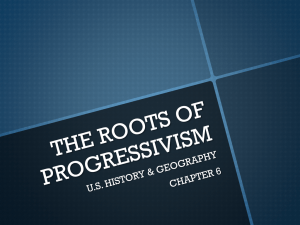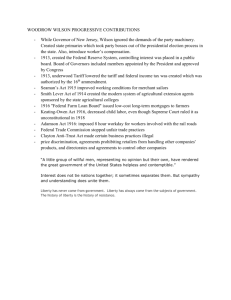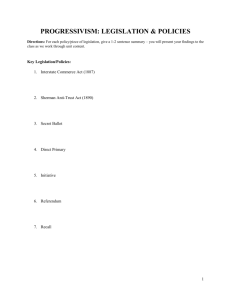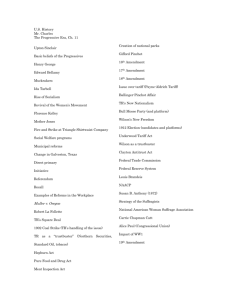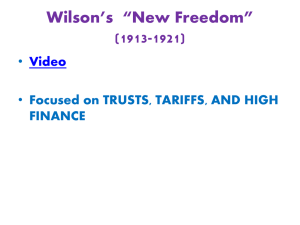Legislation During the Wilson Administration
advertisement
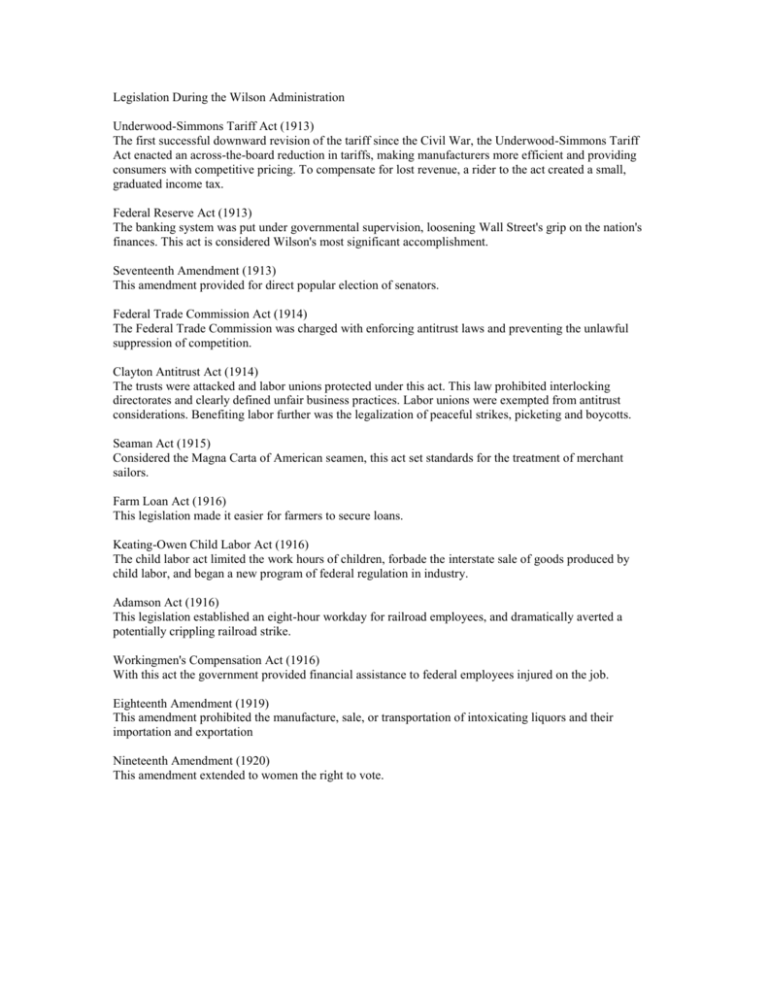
Legislation During the Wilson Administration Underwood-Simmons Tariff Act (1913) The first successful downward revision of the tariff since the Civil War, the Underwood-Simmons Tariff Act enacted an across-the-board reduction in tariffs, making manufacturers more efficient and providing consumers with competitive pricing. To compensate for lost revenue, a rider to the act created a small, graduated income tax. Federal Reserve Act (1913) The banking system was put under governmental supervision, loosening Wall Street's grip on the nation's finances. This act is considered Wilson's most significant accomplishment. Seventeenth Amendment (1913) This amendment provided for direct popular election of senators. Federal Trade Commission Act (1914) The Federal Trade Commission was charged with enforcing antitrust laws and preventing the unlawful suppression of competition. Clayton Antitrust Act (1914) The trusts were attacked and labor unions protected under this act. This law prohibited interlocking directorates and clearly defined unfair business practices. Labor unions were exempted from antitrust considerations. Benefiting labor further was the legalization of peaceful strikes, picketing and boycotts. Seaman Act (1915) Considered the Magna Carta of American seamen, this act set standards for the treatment of merchant sailors. Farm Loan Act (1916) This legislation made it easier for farmers to secure loans. Keating-Owen Child Labor Act (1916) The child labor act limited the work hours of children, forbade the interstate sale of goods produced by child labor, and began a new program of federal regulation in industry. Adamson Act (1916) This legislation established an eight-hour workday for railroad employees, and dramatically averted a potentially crippling railroad strike. Workingmen's Compensation Act (1916) With this act the government provided financial assistance to federal employees injured on the job. Eighteenth Amendment (1919) This amendment prohibited the manufacture, sale, or transportation of intoxicating liquors and their importation and exportation Nineteenth Amendment (1920) This amendment extended to women the right to vote.
